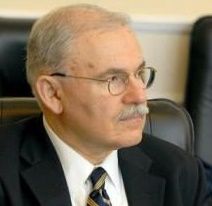One would like to think that, after the catastrophes of Vietnam and the occupation of Iraq, individuals who claim some expertise in foreign affairs would at least have learned one lesson: that ignorance of local affairs and conditions mixed in with a dose of epistemological arrogance usually produces a pretty sorry admixture.
Vietnam turned out rather badly because we didn’t or didn’t want to understand that that conflict was more about anti-colonialism than about communism and falling dominoes, and also since we were ignorant of some 700 years of historical conflict between Vietnam and China, we couldn’t draw any correct inferences from that history about likely future Southeast Asian alignments. And appointing individuals with either superficial or no knowledge of Iraqi society to make decisions with profound consequences there could not result in anything other than what Thomas Ricks correctly called a fiasco.
What is striking about Michael Brendan Dougherty’s most recent analysis of whether we should provide Ukraine with defensive weapons in his “Let Ukraine Defend Itself” appearing in The National Review is that same superficial type of familiarity acquired from a distance.
But such superficial analysis is typically wrong. The main reasons why we should provide defensive arms to Ukraine are the Budapest Memorandum, if we read it correctly, and because it is in our national interest, as will be explained below.
But before focusing on those two issues, I want to touch upon the canards and distractions that, regrettably, Dougherty introduces into his discussion.
Purported extremism and disorder
Even if the Budapest Memorandum of 1994 did not exist, would Ukraine nevertheless deserve our support today? Dougherty writes that it would not because, he claims, “Ukraine’s post-independence history has been marked by political instability, corrupt leadership, disputed elections, and dissolved parliaments.” He further claims that this is all due to Ukrainians’ alleged “negative capacity for disorder.” A touch of racism on Dougherty’s part? But let’s leave that aside.
In a little over 25 years since independence, Ukraine has held six presidential elections. Of these six, four have been found to be fair and without any controversy (the 1991, 1994, 1999, and 2010 elections). A fifth, the one in 2004, was itself fair but took place only after the Orange Revolution had forced the negation of an earlier round of voting in which the pro-Russian parties (the Party of Regions and the Communist Party) had attempted to steal that election. And the 2014 election, the sixth, was, once again, itself fairly conducted, but was unusual in that it followed the abdication by former President Viktor Yanukhovych of his office and his flight to Russia.
There have been eight elections to the Verkhovna Rada, Ukraine’s parliament, all of which were held fairly and openly. One, that in 1997, followed the Rada’s dissolution, but that dissolution was done for the same reason that most other countries with parliamentary systems have had dissolutions: to bring about early elections. Only the last election was unusual in that it followed the 2014 Maidan.
And as someone who once spent a day and a half monitoring a Ukrainian parliamentary election, the view from the local level was rather impressive. The local election boards whose activities I monitored worked very hard to ensure that in their respective districts, the election would meet all of the aspirations of genuine democracy.
Corrupt leadership? Yes, some of it obviously has been corrupt, but Ukrainian society twice rose up, in 2004-05 and then in 2013-14, to counteract such malfeasance. Perhaps Daugherty has forgotten that it took us many decades to rid ourselves of, for example, Tammany Hall and its pervasively corrupt stranglehold. And to complain, as Dougherty does, about Ukraine’s recent treatment of crimes committed during the Maidan as having “the quality of partisan ‘revolutionary justice’” is absurd. Yanukovych and his family are reliably reputed to have stolen billions from the Ukrainian treasury and to have invited Russia to violate Ukraine’s sovereignty. Seeking legal, not pitchfork, justice for such behavior hardly constitutes “revolutionary justice.”
The other canard that Dougherty twice raises to lend alleged support for his position is more pernicious. Near the beginning and at the end of his article, Dougherty expresses the fear that if the U.S. were to supply Ukraine with arms, Ukraine might “pass them on to militias such as the Azov Battalion, which is made up of fascists who fight Russians while wearing symbols such as the wolfsangel and the ‘Black Sun,’ last sported in Europe by the Nazis and their SS.”
What Dougherty and what some of the reporters who practice drive-by journalism who have written about Ukraine don’t seem to know or understand is that, for many decades, the Soviets and now more recently the Russians have routinely and repeatedly conflated and equated any manifestation of garden variety Ukrainian patriotism with “nationalism,” “fascism” and “Nazism.”
This has led some Ukrainians, whether out of carelessness, indifference or simply conceptual confusion, to use some of that terminology in ways that none of us ever would.
An Aug, 22, 2014, article about this same volunteer Azov Battalion in Britain’s Telegraph titled “Ukraine crisis: the neo-Nazis brigade fighting pro-Russian separatists” is revealing. It contains the following passage: “The Azov men use the neo-Nazi Wolfsangel (Wolf’s Hook) symbol on their banner and members of the battalion are openly white supremacists, or anti-Semites. ‘Personally, I’m a Nazi,’ said ‘Phantom,’ a 23-year-old former lawyer at the ceremony wearing camouflage and holding a Kalashnikov. ‘I don’t hate any other nationalities but I believe each nation should have its own country.’ He added: ‘We have one idea: to liberate our land from terrorists.’” (Emphasis added.) Although some other members of Azov are quoted to be making genuinely supremacist or anti-Semitic statements, what the man named “Phantom” is expressing is garden variety patriotism, not Nazism, something the article’s author, perhaps in his haste to sensationalize, seems not to have noticed.
One does not need to travel hundreds of miles to visit the front lines of the war going on in Ukraine’s southeast to be able to find out for oneself, rather than simply assume that which may be sensational and make for good copy, what it is exactly that the symbol that has been described by Dougherty and others as a copy of the Nazi wolfsangel means to the men fighting the Russians and their separatists. When I was visiting Pizza Veterano, the restaurant in Kyiv owned and operated by veterans who have recently defended Ukraine and that has become a gathering place for such veterans, I saw that same symbol hanging on one of the walls along with various other symbols and pictures. So I asked one of the owners and his colleagues what that symbol means to them. They explained that it is a superimposition of one letter from the Ukrainian alphabet, the Cyrillic “i” upon the Cyrillic “n,” and that this for them symbolized the slogan, for want of a better term, for “the idea of a nation,” which, in light of Russia’s repeated claims that Ukrainians don’t really exist as a nation, is in part symbolic pushback.
Two other points warrant mention on the issue of implied extremism. Although Dougherty does not make mention of them, another volunteer battalion that has come under criticism for its avowed dangerous right-wing proclivities is the Right Sector.
The Right Sector has both fought bravely on the front lines and some of its representatives have done or said some things that were praiseworthy, some that were neutral, and some that genuinely deserve criticism. But an important and revealing event involving the Right Sector has passed almost completely unnoticed in the West. One of the civilian victims of the Maidan, a member of the now venerated “Heavenly Hundred,” the 100 or so protestors shot to death by Yanukovych’s special police units, was a Jewish-Ukrainian from Chernivtsi named Oleksandr Shcherbaniuk.
Shcherbaniuk was buried on Feb. 23, 2014, in his hometown. What was notable about that burial was that Shcherbaniuk’s funeral procession was solemnly accompanied by a sizable contingent from Right Sector holding both national blue and yellow flags and nationalist red and black flags. And at internment, the Right Sector formally demonstrated its final respects for the fallen Shcherbaniuk with an eight-gun salute. This suggests that allegiances and alignments in Ukraine are rather more complicated than those seized upon by journalists or analysts who want to make a splash.
More generally, contemporary Ukrainians seem to be at least as tolerant as we pride ourselves for being. For the last year and a third, Ukraine’s prime minister has been Volodymyr Hroisman (also transliterated as “Groisman”), who happens to be Jewish.
While I lived in Ukraine between July 2016 and March 2017, I watched the evening news regularly. And my driver’s daily route to my place of work happened to take me past Ukraine’s Cabinet of Ministers building, which is the seat of the prime minister’s offices. Neither on television nor in any of the numerous demonstrations in front of the Cabinet of Ministers building did I ever hear or see anyone saying anything about Hroisman being Jewish. And I certainly never saw a parade of torch holders chanting “Jews will not replace us,” a la Charlottesville.
The Budapest Memorandum
Dougherty writes that the 1994 Budapest Memorandum, pursuant to which Ukraine gave up its post-Soviet nuclear weapons, “is not a kind of NATO article V in disguise.” He further avers that the only thing the Memorandum requires, which Memorandum was signed by the U.S., the U.K., Russia and Ukraine, is that “we refer violations to the United Nations Security Council, which we have done.” So, according to Dougherty, even though at least 10,000 Ukrainians have died thus far and Ukrainian soldiers continue to die almost every day because of Russian and Russian-inspired aggression in the Donbas, we’ve done everything we’re obligated to do under the Memorandum, that is, refer the matter to the Security Council.
Dougherty is right that the Budapest Memorandum is not a kind of NATO article V in disguise, but not about much else. The Memorandum contains six provisions.
The first, found in paragraph 1, provides that “The United States of America [followed by a listing of the other signatories] reaffirm their commitment to Ukraine, in accordance with the principles of the CSCE Final Act, to respect the Independence and Sovereignty and the existing borders of Ukraine.” (Emphasis added.) The so-called principles of the CSCE Final Act to which the Memorandum explicitly refers are enumerated in 10 points. The first four of these are as follows: I. Sovereign equality, respect for the rights inherent in sovereignty; II. Refraining from the threat or use of force; III. Inviolability of frontiers; IV. Territorial integrity of States. (Emphasis added.)
The provision to which Dougherty appears to makes reference, albeit inaccurately, is paragraph 4. It provides that the signatories “reaffirm their commitment to seek immediate United Nations Security Council action to provide assistance to Ukraine, as a non-nuclear-weapon State Party to the Treaty on the Non-Proliferation of Nuclear Weapons, if Ukraine should become a victim of an act of aggression or an object of a threat of aggression in which nuclear weapons are used.” (Emphasis added.)
So, according to Dougherty, Ukraine gave up its nukes merely for the promise of a phone call or a speech at the U.N. Security Council if and when it became the victim of aggression? And all of the other language, the repeated references to reaffirmed commitments by the U.S. and the U.K. to Ukraine’s sovereignty and territorial integrity, and the explicit reference to providing assistance to Ukraine by the U.N. Security Council, of which the United States is a permanent member, if Ukraine becomes a victim of aggression is all just empty talk, just fluff?
There is a lot of operational room between, as it is under Article V, the U.S. being obligated to defend without qualification another member of NATO in case of attack, and doing nothing other than making a speech at the U.N. Security Council in the case of Ukraine’s being the victim of aggression, which aggression no one now disputes.
To begin, the Memorandum explicitly provides that if it is attacked, Ukraine is supposed to receive assistance, not merely speeches.
The exact nature of that assistance is not specified, so Ukraine could not expect American or British soldiers to provide Article V-type help by standing shoulder to shoulder with its own soldiers on the front lines in Donbas. But, when there is a case of armed aggression, no one in his right mind could think that a speech at the Security Council could constitute all of the assistance due to and expected by the victimized country, here Ukraine.
If Ukraine sought rockets that could reach Moscow or other arms that could be used to mount an offensive into Russian territory, even after, as now, it had been attacked by Russia, such requests should be denied as neither the Memorandum nor common sense would support them. But Ukraine has repeatedly been asking for defensive weapons, not American or British boots on the ground, and not any offensive weapons, but merely weapons so that it is better able to contend with the ongoing attacks its soldiers continue to sustain, and in order to mount a stronger deterrence against any further Russian incursions. If the Memorandum does not provide for at least that, then the Memorandum was a complete charade and all of its words about reaffirming Ukraine’s territorial integrity a ruse, a con. I obviously was not involved in representing our country in the negotiations leading to the signing of the Memorandum, but I don’t believe that we enter into international agreements, and this was indeed an agreement insofar as Ukraine promised to perform an action, i.e., give up its nukes, and it did so, for the purpose of fooling the other parties to such agreements.
It is in US national interest to help Ukraine
Even if there were no Budapest Memorandum, it would still be in our national interest to help Ukraine defend itself. The reasons are many. First, Russia is on an aggressive mission to export its current political and intellectual pathologies, its universe of alternative facts, its authoritarianism, and its need, born of its untreated insecurities, to find new ways to cause us malicious mischief or harm. (See, for example, Peter Pomerantsev’s Nothing Is True and Everything Is Possible: The Surreal Heart of New Russia.) Russia is trying through aggression, manipulation and sabotage to subordinate Ukraine, to somehow bend Ukraine to inclusion within the twisted Russian world. (See, for example, Taras Kuzio’s Putin’s War Against Ukraine.) It is not in our interest that this campaign strengthen or expand.
Aside from its politics, Russia also is involved in international criminality on a massive scale. (See, for example, Karin Dawisha’s Putin’s Kleptocracy: Who Owns Russia.) It is very much in our interest to have a cooperative law enforcement relationship with Ukraine, as we presently do.
To cite but one recent example, as the New York Times reported on its front page on 8/17/2017, the Ukrainian creator of the code that appears then to have been used by Russia’s security services to hack into the DNC server is cooperating with Ukrainian police and with our FBI. That kind of a relationship is quite obviously in our national interest.
Third, despite its various shortcoming and challenges, Ukraine has—after for almost 70 years having been drowned in Sovietism and isolated from the rest of the world by Sovietism—made substantial progress towards liberalizing its economy and building a genuine democracy.
It has begun, but still has a long way to go, to reduce corruption. But perhaps most importantly, it is an open society in the Popperian sense, that is, its public information and intellectual space is filled with vigorous and free debate, and it has a healthy and strong sense of facts and reality. It is precisely this that allows for societal self-correction.
Compare this state of affairs to that prevailing in Russia, and then think again about whether it is in our interests to help defend Ukraine—without putting any American boots on the ground in Donbas and without any offensive weapons, but merely with the defensive weapons long sought by Ukraine to help deter more Russian aggression.
The article was first published at kyivpost.com
Attention
The author doesn`t work for, consult to, own shares in or receive funding from any company or organization that would benefit from this article, and have no relevant affiliations



